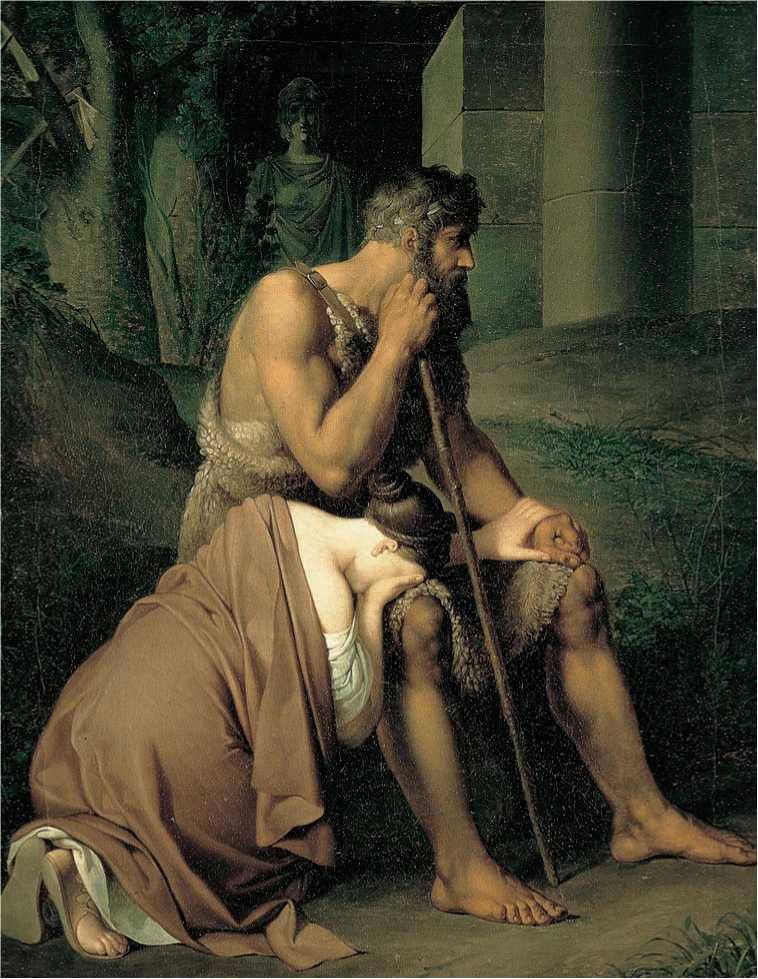The most famous version of Antigone’s story is the play Antigone by Greek dramatist Sophocles (c. 496—406 BCE). Sophocles’ tragedy demonstrates Antigone’s qualities of piety and heroism. In burying her brother, she follows the laws of the gods in direct violation of the command of the king. She is aware that there will be serious consequences, but in her mind she has no other option but to act. For her, religious beliefs and family duty take precedence over the laws of the city; the burial of her brother is more important than her uncle’s command. She does what is right in spite of the consequences to herself.
Antigone features in two other tragedies by Sophocles. In Oedipus the King, she and her sister Ismene appear at the end of the play to be with their father, who has torn out his eyes after learning that he has unwittingly killed his father Laius, and married his own mother. In the sequel to this play, Oedipus at Colonus Antigone is portrayed as a faithful daughter who guides her blind father from place to place during his exile.
Antigone has continued to be an important character in more modern times. Inspired by Sophocles’ Antigone, German philosopher Georg Wilhelm Friedrich Hegel (1770—1831) wrote several treatises about ethics, the individual, and the state. The first modern production of Antigone was performed with music by German composer
ANTIGONE

Left: Oedipus and Antigone at Colonus by Johann Peter Krafft (1780—1856). Ever loyal to her family, Antigone led her blind father, Oedipus, to Colonus in Attica, where the king knew from a prophecy he would die.
Felix Mendelssohn in Potsdam, Germany, in 1841—a production that marked the beginning of the revival of Greek plays in western Europe.
Among the many interpretations of the Antigone theme, there is one that deserves special mention. In 1944, during the German occupation of France in World War II, French dramatist Jean Anouilh (1910—1987) wrote another play called Antigone. Anouilh’s drama portrays Creon as a reasonable ruler, while Antigone is hysterical and unwilling to compromise. Yet despite these qualities, Antigone’s attitude is very understandable: her brothers have killed one another, Creon has first refused to honor one of his nephews, and then sentenced one of his nieces to death. Under such circumstances, there is no place for reason.
The play suggests that Antigone’s rebellion against her uncle and life itself is the only choice left to her. The tragic end to the drama comes when Creon realizes that, despite all his power, he cannot stop his niece, son, and wife from destroying themselves.
Feyo Schuddeboom
Bibliography
Graves, Robert. The Greek Myths. New York: Penguin, 1993. Sophocles, and Ruth Fainlight and Robert J. Littman, trans.
The Theban Plays. Baltimore, MD: Johns Hopkins University Press, 2009.
See also: Oedipus.




 World History
World History









